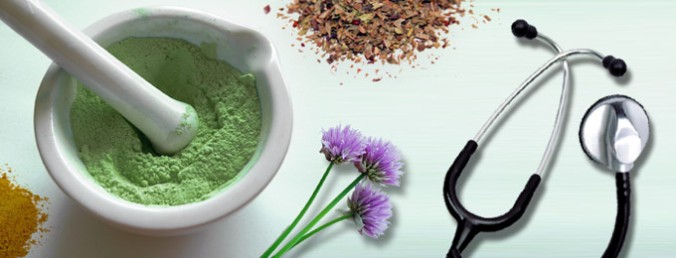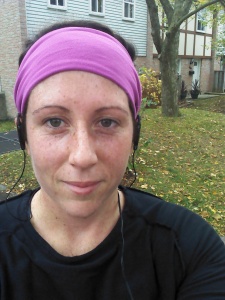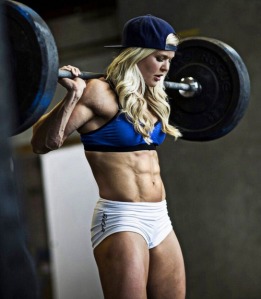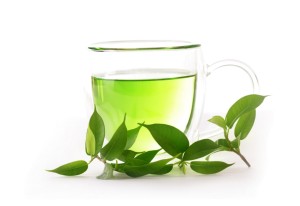Every few months a medical journalist has to make a quick buck; the result is some horribly misinformed, fear-mongering, polarizing nonsense that eclipses good, moderate health decisions among the general public. One moment, one macronutrient group is valorized while another is demonized (think low-fat, then low-carb, high fat). Quite frankly, it’s irritating, especially because then the media needs to rescue the once-maligned macro to restore equilibrium and help everyone sleep at night. First, fat is terrible for you and causes heart disease, now it is necessary for fighting diabetes. Carbs were the devil among Paleo folk, and now everyone is eating rice again. Higher protein diets have been advocated by an increasing amount of fitness professionals and health care providers alike, and now this Maclean’s article is claiming that increased protein will kill you faster, and that we’re eating too much of it.
Welcome to this never-ending cycle of macro-nutrient wars. On a long enough timeline any and all extreme claims about one macro-nutrient are eventually balanced out and everyone regains their sanity for a few moments before casting their suspicions on another food, which will inevitably be blamed for all of our obesity, heart disease and cancer before we realize that those assumptions were premature and reasonable amounts of said food are either benign or healthful.
Why waste all this energy on such a hamster wheel of pseudo-science and sensationalism in the first place?
Here’s the thing: nutritional research is inherently and notoriously flawed. If it weren’t, we would have figured out the ideal human diet by now. As it stands, nutrition is a highly complex field riddled with research that is either designed or executed poorly and is subject to the limitations of having autonomous free-living human beings as study subjects. It’s a recipe for bad science. Add to that the sheer volume of scientific research going on today and you’re left with a vast sea of incomplete knowledge to support nearly any conclusion you’d like to support.
Enter the Maclean’s article, which uses a few studies to show some of the potential dangers of protein consumption. I can find just as many, if not more, studies to support the benefits of protein consumption on longevity parameters and chronic metabolic diseases. It’s all a matter of what you’re looking for. It’s also fairly naive to trust the conclusions of a study without asking some important questions about its design, assumptions, and repercussions.
So I’m going to go toe-to-toe with this article and point out some pretty dangerous assumptions it makes in hopes that you, too, will question what you read.
Firstly, this article is promoting someone’s new book. I’m just pointing out that this is as much of a press release as it is science journalism. The author then goes on to state Canadian dietary guidelines from 1939, as if this makes the too-much protein claim more legitimate. As far as scientific evidence goes, what was gospel in the past is not always correct now. In fact, it is often downright wrong. Only thirty years ago, science textbooks claimed our genome is made of hundreds of genes; now we know the human genome to have tens of thousands of protein-coding genes.
Next, the author goes into volumetrics, which is based on the calorie argument. The body of evidence stating that weight loss comes from a caloric deficit is so robust it’s virtually irrefutable, so consuming fewer calories is an important concern and often achieved by high-volume, low-calorie foods such as vegetables and fruit. It is also true that, per gram, protein and fat contain more calories than carbohydrate. However, a very important factor that this author ignores is the hormone effect, which is almost as big a player in the weight-loss and disease prevention game as calories. Insulin regulation is an important factor in diabetes treatment and prevention; this hormone dictates whether we turn energy into muscle or fat, and is highly influenced by the macronutrient profile of foods. Fats, proteins and carbohydrates are metabolized very differently, a crucial point which this author conveniently omits. This article ignores basic knowledge of physiology.
Both this author and I can agree about processed protein foods being more harmful than helpful. It is also true that the average sedentary person needn’t chug extra protein shakes, but the research that informs the International Society of Sports Nutrition states that supplemental protein in the form of whey isolate activates muscle-building pathways. Furthermore, the ISSN released a study that showed a high protein-fed group of subjects did not change body composition compared to a moderate protein-fed group. Protein has a very different effect on the body than carbs, and the author misses the subtleties of human metabolism. Although I do not intend to excuse the author, I do admit that from a research perspective, we still have much to learn about human nutrition.
So yes, meat is energy-dense, but this energy-dense food is also nutrient-dense. There’s a bunch of food out there today for which we cannot say the same. We live in a world of nutrient-poor energy-dense foods, and we should avoid these types of food. Protein-based foods, so long as they come from whole foods, should not be eschewed. In fact, the types of fats in pasture raised red meat, such as CLA and omegas 3 fats, are associated with lean body mass. What’s more, even though for years we thought red meat caused heart disease, this appears to be false. This meta-analysis (aka the most powerful,meaningful type of research study, from a very well-respected cardiac researcher no less) states that processed meat, not red meat, is associated with heart disease. Therefore, it is clearly the quality of the food sources that matters. Is this a surprise to anyone here?
This author has made no distinction between the industrial sources of meat consumed by the majority of the population and ethically raised pastured eats raised on foods they were born to eat rather than those which make them sick. By purchasing conventionally raised meat, we are buying and ingesting antibiotics and hormones that we did not bargain for. This is not particularly healthy, so I agree with the author on this point. However, clean sources of protein and conventionally raised proteins are two very, very different animals (literally), and one mustn’t throw the baby out with the bathwater.
What bothers me about this article is that it is so reactionary. People have been maligning carbs for too long which has now become stale news, so the media must now make protein the new pariah. Knowing what I know about scientific research (that there’s enough of it to support virtually any conclusion), I look for trends and common denominators among it all and combine it with traditional wisdom and clinical experience. In so doing, I have come up with the following conclusions:
There is no such thing as one perfect diet. What works really well for one person can be a terrible idea for another; this is because we are all vastly different in all the ways that we interact with food. This news should actually be very encouraging. The author of this article cites Okinawa and Sardinia as places where people eat little meat and are healthy; these examples are simply two of many traditional diets which are very healthy for the indigenous societies and contain a varying array of animal products. The Weston A Price foundation continues the work of the eponymous dentist who traveled the world to study the traditional diets of indigenous cultures with shockingly low rates of chronic metabolic disease. He found incredibly healthy people thriving on diets high in bread, butter, even marine mammal blubber. These societies knew how to use their resources and lived long, healthy lives.
In almost every case, you need to eat more vegetables. I don’t care if they’re organic or not, but vegetables protect against cancer, balance your hormones, help scavenge free-radicals that contribute to aging and disease. It’s not sexy or controversial, so it doesn’t get much press unfortunately, but no one is saying we are vegetable-deficient, and that is the scarier reality to me. You would absolutely do better to replace one serving of protein for vegetables, but more because of the benefits of vegetables than the harms of protein – that’s where this article misses the mark.
Processed food is also terrible, upon this we both agree. What upsets me so much is that people get so worked up about maliging or defending low-carb that we lose sight of the fact that we need to just eat foods that are made up of things that also used to be foods. Some of these scare-tactic articles pumped out by media outlets really miss the forest for the trees. Remember this article about subway using “yoga mat chemical” in their bread? Then the response to normalize the situation and calm everyone down went something like this. Yes, frightened public, azidocarbamide is in loads of industrially baked breads, so it’s okay. I question why it’s okay to have something in bread that is not flour, yeast, water, sugar and oil? Food should resemble food. Sometimes we get so worked up in the minutiae that we need some perspective. Eat real food. Usually, the rest works itself out.
No one is saying that protein should be eaten with reckless abandon; after all, the difference between medicine and poison is simply the dose. In general, I would say we overeat practically all types of food except vegetables. This is understandable when delicious foods are in practically limitless supply. However, protein and fat are essential to our diets, carbohydrates less so (you can make carbohydrates from fats and from proteins, they’re called ketone bodies, hence the ketogenic diet). There is nothing inherently wrong with any macronutrient. Carbs, fats, and protein are all fairly important for eating well and meeting your body’s needs. Aim instead for quality. Procure oils from oily things, Also know that science hasn’t yet figured out the best proportion of these macronutrients for any given person, and maybe that’s because a one-size-fits-all solution does not exist. You actually have to determine for yourself what works.
Clinically, I’ve found that people tend to eat an abundance of carbs, so I’m not sure where all this protein mania is coming from. I’ve been vegetarian for 1.5 years and thoroughly enjoyed it…but my body hated it. I developed nutrient deficiencies from not consuming enough iron and vitamin B12, which are basically only available in any appreciable form in animal products. I’ve also helped many people who have suffered from blood sugar imbalances by encouraging them to include a source of protein in their morning routine. Mood disorders and depression are practically endemic among teenage girls who “go vegan” to be healthier and subsequently cause themselves serious nutrient deficiencies. Furthermore, I shake my head when diabetes patients are encouraged to eat a giant bowl of carbs for breakfast with no protein or fat – what a terribly balanced meal.
I’ve taken issue with this whole radical dogmatic approach to food we seem to have taken lately. Nowadays, your food choices seem to intertwine with your identity. We don’t say “I eat paleo” or “I eat vegan”, we instead say “I’m vegan”, or “Are you paleo?” as if your dietary habits are part of who you are. The whole “this isn’t a diet, it’s a lifestyle” thing seems funny to me now. It’s not a lifestyle; it’s simply your food choices, and congratulations on making smart ones. That’s awesome, but it gets a little out of hand when people start taking things too far and when the media feeds this unnecessary fire. Then, if we don’t eat the way we’ve vowed to eat, we feel terrible about ourselves because it was our cousin’s boyfriend’s birthday and we had some ice cream made with milk. The horror!
In conclusion, I just want everyone to drop the insanity and overthinking and obsession over food. Probably the stress of it all is raising your cortisol levels and predisposing you to disease and weight gain (fact). Eat the most quality foods that you can, and if you can get it from a farm instead of a grocery store, all the better.
Michael Pollan said it best, so I will leave this one here for you to ponder. It’s the most robust diet philosophy I’ve read: “Eat food. Mostly plants. Not too much.”



